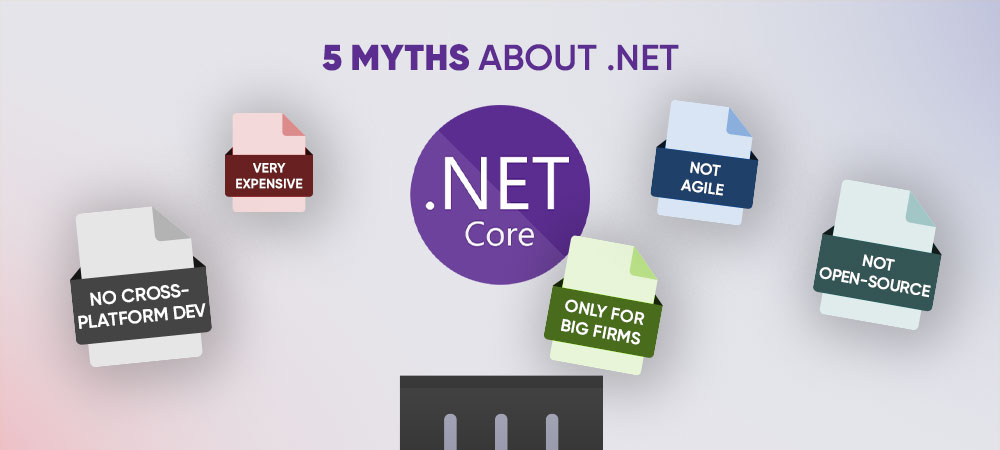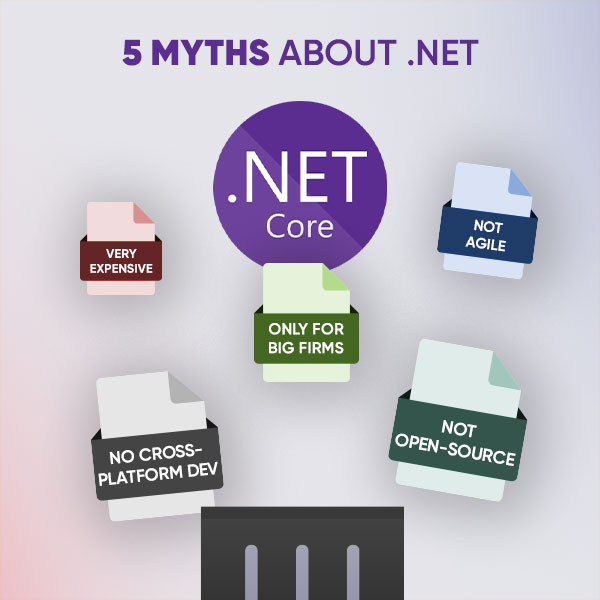We are .NET specialists. It's true. We have been involved in this programming universe for years, so our perception of it against the background of alternatives is a subjective view from the inside. It's also true that we mainly work on complex and usually costly digital projects. This does not stop us from seeing the advantages of .NET as an excellent framework for many digital projects, including startups.
For an objective perspective, I asked AI to describe popular frameworks as student archetypes. I didn't ask any other questions earlier so as not to suggest anything. Here are the results.
"JavaScript is like the creative artist student who brings a unique, artistic flair to projects."
"Python is comparable to the math whiz student who is exceptionally good with numbers and logical problem-solving."
"Ruby on Rails resembles the social butterfly student who thrives in group projects and has excellent communication skills."
".NET stands out as an adaptable all-rounder who can excel in different situations and adapt to various challenges. While other "students" have their specific strengths, .NET's versatility and willingness to evolve make it a valuable and well-rounded choice for a wide range of software development projects."
So, since .NET is as versatile as the collective mind of the internet enchanted by artificial intelligence defines it, let's dispel a few myths about it.
MYTH 1: .NET is expensive
One of the most common misconceptions about .NET is its perceived costliness. While Microsoft offers commercial licensing options for enterprise-level applications, there are cost-effective alternatives for smaller projects. For instance, .NET Core, now evolved into .NET 5, .NET 6, and later .NET 7 with long-term support (LTS), is free and cross-platform, allowing applications to run on Windows, Linux, or macOS without additional fees.
Besides, Microsoft offers free, feature-rich development tools like Visual Studio Code and Visual Studio Community Edition, making it accessible for smaller companies to develop robust applications.
Myth 2: .NET is Not Suitable for Cross-Platform Development
Yes, historically, .NET was tied to Windows development. But with .NET Core, .NET 5, 6, and now 7, Microsoft has enabled cross-platform development. Smaller companies or startups can now easily create applications that run on various systems, reaching a wider audience without extensive platform-specific work.
Myth 3: .NET is Only for Large Enterprises
.NET isn't limited to large enterprises with massive IT budgets. While it's true that many enterprise-level applications use .NET due to its scalability and robustness, .NET can be just as effective for smaller companies and startups.
With its wide array of libraries, frameworks, and tools, .NET empowers smaller businesses to develop sophisticated applications with relatively small development teams. Additionally, the scalability of .NET means that your application can grow as your business does, ensuring a smooth transition from a startup to a more substantial operation.
Myth 4: .NET is Not Agile
Agility is essential for startups and smaller companies, and some mistakenly assume that .NET development is slow and cumbersome. However, .NET has evolved to meet the demands of agile development methodologies. The introduction of .NET Core and its focus on performance, modularity, and containerization has made it easier to build and deploy applications quickly.
Myth 5: .NET is Not Open Source
Another common misconception is that .NET is a closed, proprietary technology stack. This belief couldn't be further from the truth. Microsoft has embraced open-source development, releasing .NET Core and later versions as open-source projects under the MIT License.
So, in conclusion, don't be swayed by misconceptions—consider .NET a viable choice for your next project. And consult it with us.


 For an objective perspective, I asked AI to describe popular frameworks as student archetypes. I didn't ask any other questions earlier so as not to suggest anything. Here are the results.
For an objective perspective, I asked AI to describe popular frameworks as student archetypes. I didn't ask any other questions earlier so as not to suggest anything. Here are the results.